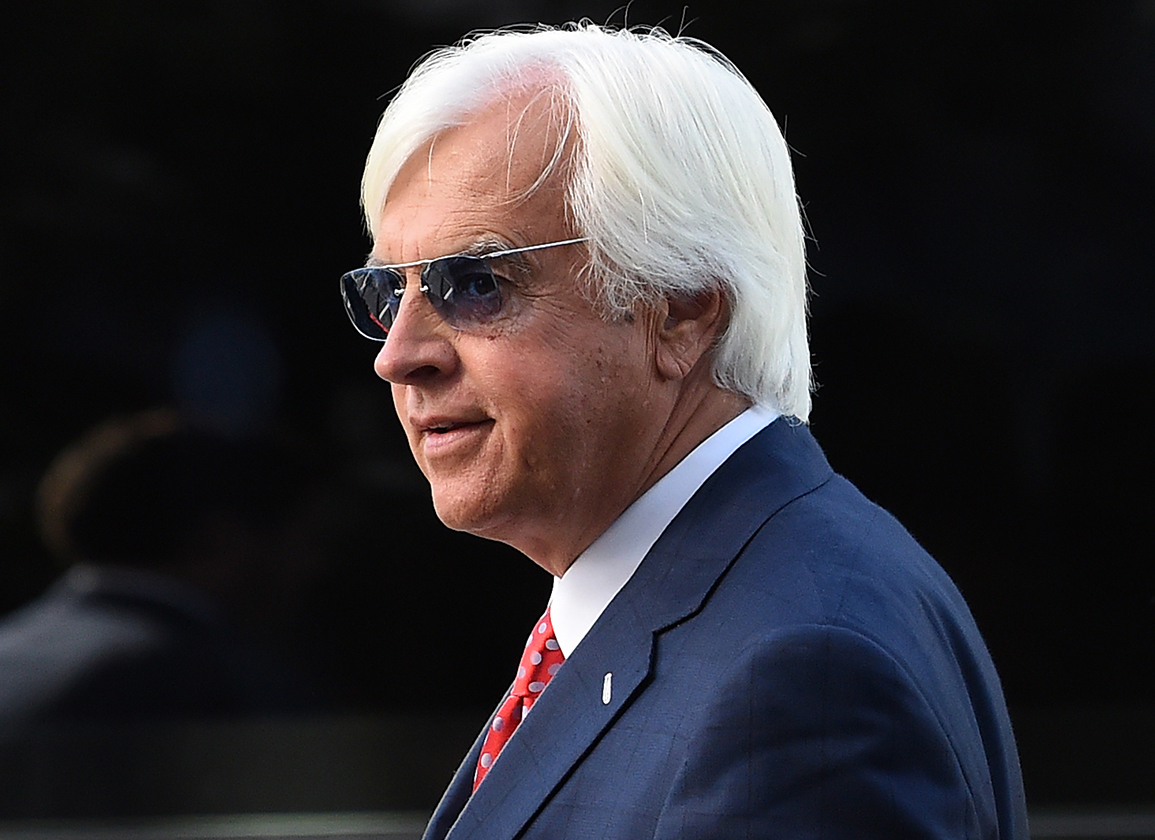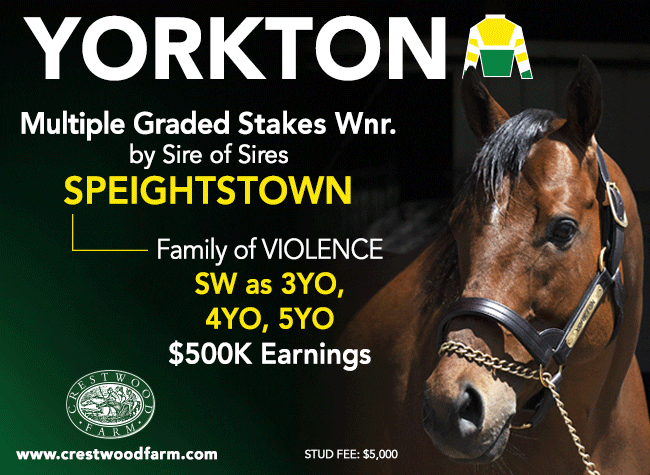By T. D. Thornton
The Jockey Club (TJC) on Wednesday told the judge in Bob Baffert's federal lawsuit against the New York Racing Association (NYRA) that in deciding whether or not to lift the trainer's banishment from Saratoga, Belmont Park and Aqueduct, it is imperative to consider the larger issue that tracks should be entitled to bar anyone “credibly responsible for the administration of medication resulting in a substance violation” in order to “protect the health and safety of the sport's participants.”
Using a “friend of the court” brief, which is a legal document filed by an entity not named in a suit but interested in influencing the outcome of the case in alignment with one of the parties (in this case, defendant NYRA), Susan Phillips Read, an attorney for TJC, wrote that the court should deny Baffert's motion to prevent his exclusion from those tracks because Baffert “has not demonstrated the irreparable injury necessary to support [the] issuance of a preliminary injunction.”
Separately on Wednesday, attorneys for NYRA filed 238 pages of supporting documents, including a memorandum in opposition to that same injunction based on three assertions: “First, Plaintiff fails to demonstrate that he will suffer irreparable injury in the absence of emergency relief…. Second, Plaintiff fails to establish that he is likely to succeed on the merits of his claims….Third, the public interest and balance of equities weigh clearly in favor of NYRA.”
Baffert was told May 17 that he was not welcome to stable or race at NYRA's three tracks in the wake of his disclosure that Medina Spirit (Protonico) had tested positive for betamethasone after winning the GI Kentucky Derby. That revelation by Baffert was later confirmed by split-sample testing at two different labs approved by the Kentucky Horse Racing Commission, but no ruling has yet been issued over those findings.
On June 14, Baffert filed a civil complaint against NYRA, alleging that the association's ban violates his Fourteenth Amendment constitutional right to due process. A hearing is scheduled July 12 in United States District Court (Eastern District of New York).
“The source of damage to Mr. Baffert's reputation is not the NYRA temporary suspension,” Read wrote in the June 30 brief. “Rather, the cause is a record of repeated drug testing failures, including most recently after American racing's most famous and highly visible race, the Kentucky Derby.”
The filing continued: “This is a high-profile dispute, involving, as it does, whether Mr. Baffert, a well-known figure whom many of the public identify with Thoroughbred racing, is entitled to immediate access to two of the sport's most iconic venues, Saratoga and Belmont, despite repeated drug violations…
“Equine medication rules are intended to protect health and safety and to ensure a level playing field for racing and wagering. Whether through malfeasance, carelessness or a cavalier attitude toward the medication rules, horses in Mr. Baffert's custody and care have proved to be significantly embroiled in medication violations. He alone bears responsibility for this state of affairs.”
The betamethasone finding in the 2021 Derby was the fifth positive drug test in a Baffert trainee within the past year (two others were for lidocaine, one was for dextrorphan, and another also for betamethasone). It was the trainer's third during that time frame in a Grade I stakes, and it led to a June 2 banishment from the entire Churchill Downs corporate family of tracks for a period of two years.
Simultaneously, Baffert has been embroiled in a drawn-out court battle in California over whether to disqualify 2018 Triple Crown winner Justify (Scat Daddy) from that year's GI Santa Anita Derby because of a scopolamine finding.
And in 2013, after seven sudden horse deaths in Baffert's Hollywood Park barn, a California Horse Racing Board (CHRB) investigation concluded that although “the blanket prescribing of thyroxine to all horses in Baffert's barn does appear unusual” the fatalities remained “unexplained [and] there is no evidence whatsoever CHRB rules or regulations have been violated or any illicit activity played a part.”
Read wrote in the brief that TJC's interest in this case “is broader than any particular personality or racetrack. From TJC's perspective, in order to protect the health and safety of the sport's participants and retain the public's confidence in the integrity of racing and wagering, racetrack governing officials should be entitled to suspend immediately a trainer or anyone else credibly responsible for the administration of medication resulting in a substance violation.
“These decisions will almost always have to be made swiftly to be meaningful. In this case, the data… belie Mr. Baffert's protestations that the NYRA temporary suspension will cause him to lose his business, as his livelihood does not depend on access to NYRA tracks.
“In the run-up to the [GI] Belmont S. NYRA acted in the best interests of New York racing to temporarily suspend Mr. Baffert from entering horses in races and occupying stall space at NYRA tracks. In TJC's view, NYRA had no choice under the circumstances, created entirely by Mr. Baffert, which undermined public confidence in the treatment and well-being of the sport's equine and human athletes…”
Baffert had alleged in his civil complaint that the current NYRA suspension will cause him to lose the “ability to pursue and practice in his chosen profession and livelihood” while damaging his reputation and causing a “mass exodus from his care of horses worth tens of millions of dollars as owners cannot allow themselves to be excluded from participation in the lucrative Belmont/Saratoga race meets.”
Read countered that those allegations “are conclusory and speculative” and that Baffert's suit failed to provide a foundation of evidence to support those claims.
“Here again, Mr. Baffert provides no evidentiary support for his assertion that the NYRA temporary suspension has damaged his reputation,” Read wrote. “Mr. Baffert does not say how many horses this might involve; he does not say that [an owner who moved out horses] attributed the transfer to the NYRA temporary suspension, as opposed, for example, to his record of substance violations or the two-year Churchill Downs suspension…
“Further, Mr. Baffert has typically entered very few horses in races held at Saratoga: during the past 10 years, his starts there have ranged from a low of one (2015) to a high of eight (2011 and 2020), with an annual average of five,” the brief stated.
“To the extent that Mr. Baffert brings horses to NYRA tracks, he usually does so to race in graded stakes races…. [T]here are many alternative graded stakes races available to Mr.
Baffert at racetracks in the United States other than those operated by NYRA…. [O]ver 95% of Mr. Baffert's starts annually for the past 10 years have been at non-NYRA tracks, and the lion's share of his horses' earnings in graded stakes races derive from his successes at those non-NYRA tracks,” the brief stated.
W. Craig Robertson, an attorney representing Baffert in this case, did not reply to an emailed request for comment on Wednesday's filings by TJC and NYRA prior to deadline for this story.
Not a subscriber? Click here to sign up for the daily PDF or alerts.






